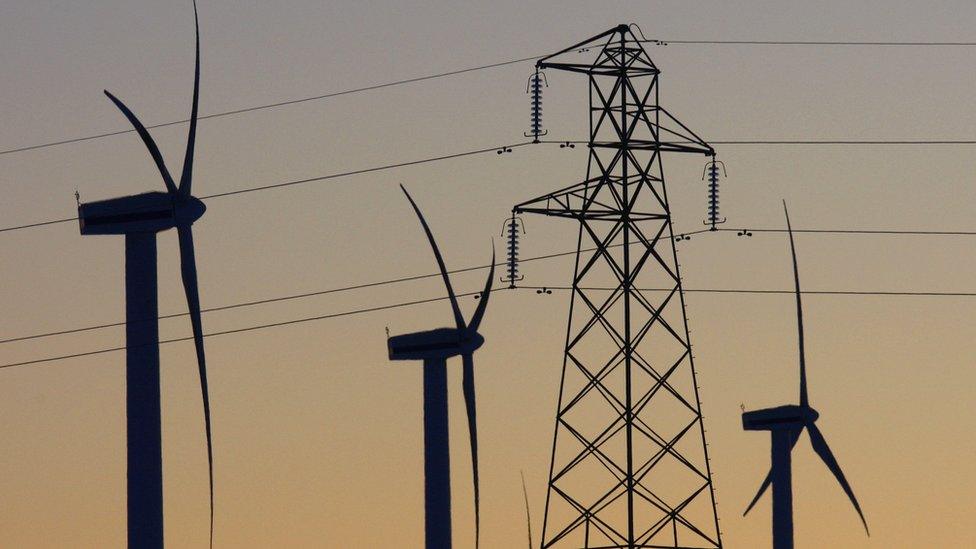BBC Look East news programme gets carbon makeover
- Published
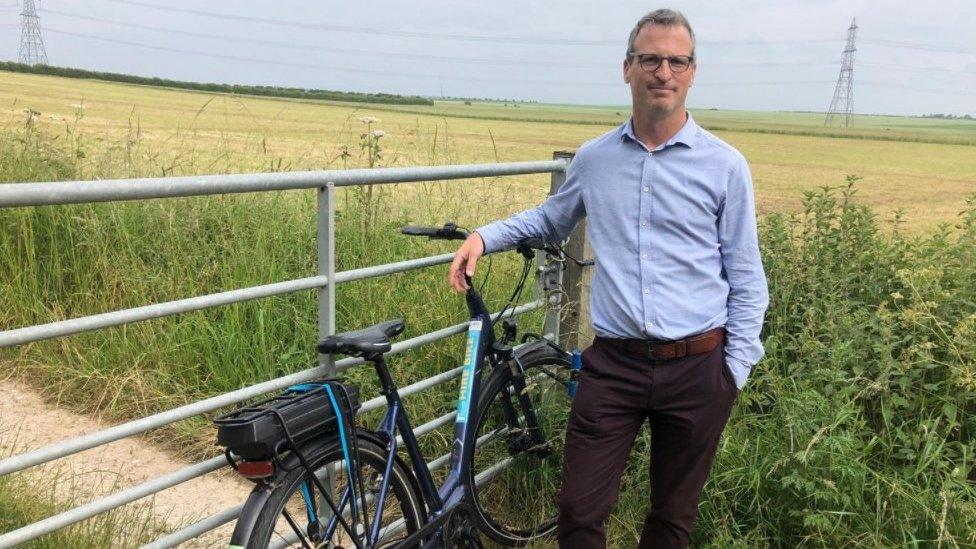
BBC Look East reporter Richard Westcott took to an electric bicycle in an effort to reduce the show's carbon emissions
A regional BBC news programme has become the first in the broadcaster's history to undergo a "carbon makeover", cutting its emissions by two-thirds.
Reporters on Cambridge-based Look East used electric bicycles and cars and charged cameras and drones using solar power to make Monday night's programme.
As studio lighting is also a big carbon emitter, the programme came live from the car park - in natural light.
A hydrogen fuel cell generator was used to power the programme.
The Look East team worked with the Cambridge Institute for Sustainability Leadership at the University of Cambridge, to measure their carbon footprint, and found travel was their biggest carbon contributor.
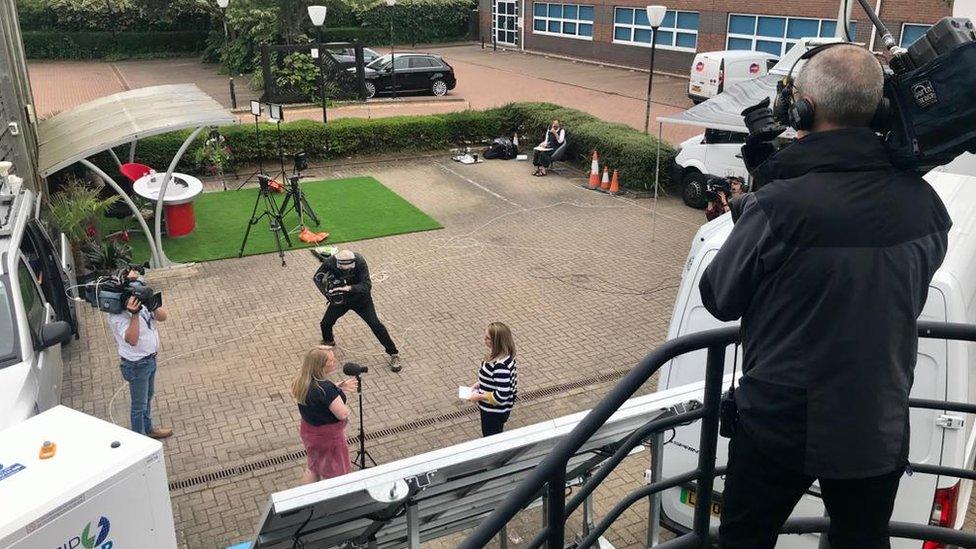
The show came live from the car park at the BBC's Cambridge Business Park site
Staff were also encouraged to increase their levels of car sharing and reduce their consumption of single-use plastics.
"We wanted to find an exciting, challenging way to engage with our audiences on what can seem a daunting subject, and share some of the local challenges and solutions," said Ian Kelly, Look East assistant editor and project lead.
"Using no carbon is really tough; offsetting is one way to achieve carbon neutrality but we hope the journey we have begun will help contribute to a broader understanding of the challenges."
As a result, Look East has become the first BBC regional news programme to be given an industry-recognised "Albert certified" sustainability accreditation by Bafta, external.
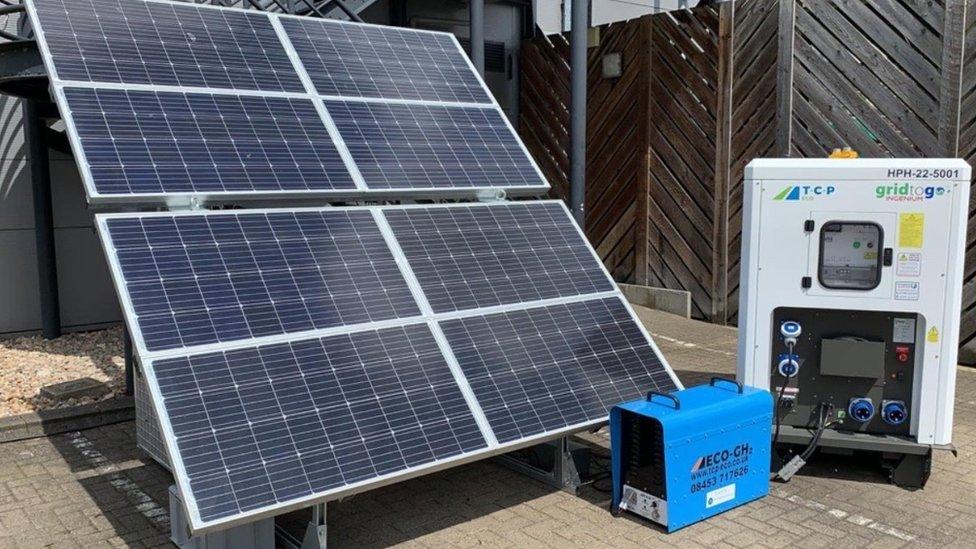
The carbon makeover for the special programme has slashed the programme's emissions by two-thirds
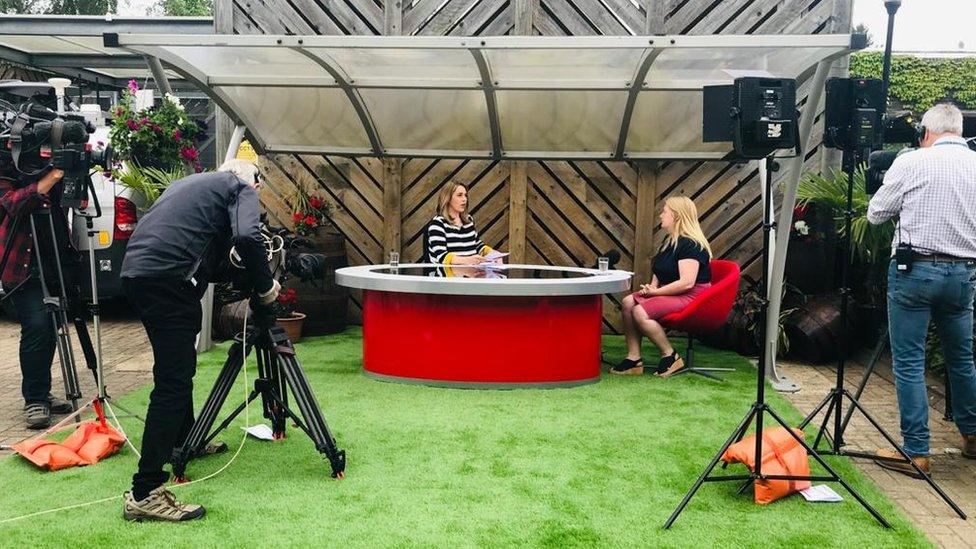
The bike rack's canopy saw service as the "studio" ceiling
Rhodri Talfan Davies, director of BBC Nations, said it was "vital that all organisations look carefully at their impact on carbon emissions".
"We'll be assessing the impact of Monday's broadcast to see what lessons can be learned across the whole organisation," he added.

Find BBC News: East of England on Facebook, external, Instagram, external and Twitter, external. If you have a story suggestion email eastofenglandnews@bbc.co.uk, external
Related topics
- Published20 April 2021
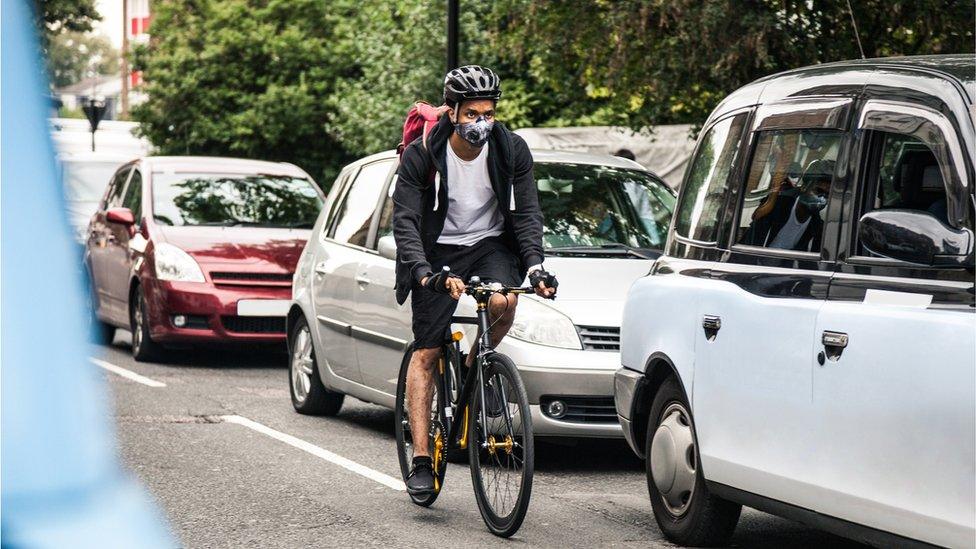
- Published18 November 2020
